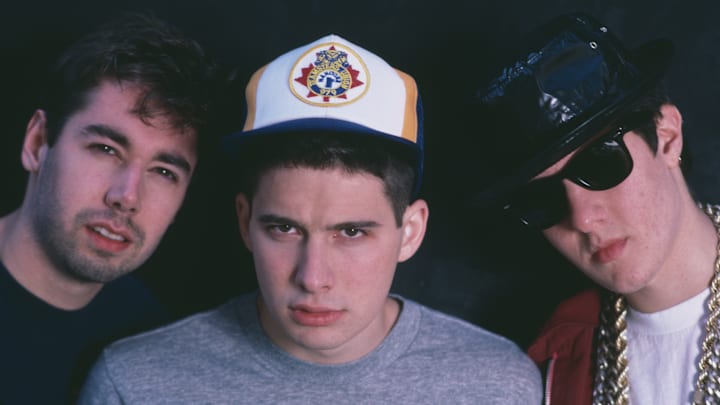ICYMI: The Beastie Boys have taken legal action against Brinker International, the parent company of Chili's, accusing the restaurant chain of using their iconic, rebellious-sounding song "Sabotage" without proper authorization in a 2022 social media advertisement. The lawsuit was filed in a federal court in New York by the two surviving members of the group, Adam Horovitz and Michael Diamond, along with the executor of the estate of Adam Yauch, who passed away in 2012. Yauch’s will explicitly forbids the use of his music in commercial advertisements, making this case particularly significant for the group.
The Beastie Boys allege that Brinker International not only used substantial portions of "Sabotage" but also mimicked the song's famous music video. The Chili's ad in question reportedly featured three individuals in 1970s-style disguises, stealing ingredients from a Chili's restaurant — a clear nod to the original "Sabotage" music video, which parodied 1970s crime dramas with the group members dressed in similar attire. The original music video, directed by Spike Jonze, was a major success and remains one of the most recognizable and influential music videos in hip-hop history.
The Beastie Boys are no strangers to legal battles over their music. In 2014, they successfully won $1.7 million in a copyright infringement case against Monster Energy, which had used one of their songs without permission (the lawsuit also involved a DJ using the name "Z-Trip"). This history of defending their intellectual property underscores the seriousness with which they approach unauthorized uses of their work, and reminds creators and corporations that approval may be a smart "checklist item" before using another person's work or likeness.
"Sabotage," which was released in 1994 as part of the album Ill Communication, quickly became one of The Beastie Boys' most popular tracks. The song is known for its aggressive bass guitar riff and energetic vocals, which marked a departure from the group’s earlier, more sample-heavy sound, while tapping into the band's punk rock roots. The song's success, along with the iconic music video, solidified The Beastie Boys' place in music history, blending punk rock and hip-hop in a way that was both groundbreaking and influential.
Why The Beastie Boys are an important crossover act
Why might rock fans care about this story? The Beastie Boys still have cross-genre appeal all these years after "Sabotage" first emerged. Recently, in a nod to the band's rock elements, Mötley Crüe covered their song "Fight For Your Right," which has a classic rock riff.
The Beastie Boys' decision to file this lawsuit is in line with their long-standing commitment to maintaining control over their music and ensuring it is not exploited for commercial purposes without their consent. Given the specifics of Adam Yauch's will, this lawsuit is not just about financial compensation but also about honoring the late musician's wishes and protecting the integrity of the band's legacy. The case highlights the ongoing tension between artists and commercial entities over the use of music in advertising, especially when the work in question holds significant cultural value.
As the case progresses, it will likely draw attention to broader issues of intellectual property rights in the digital age, particularly concerning the unauthorized use of music in social media and online advertising, where content can spread rapidly and reach millions of viewers with minimal oversight. The outcome of this lawsuit could set a precedent for how music is used in advertisements and underscore the importance of respecting artists' rights, especially when those rights have been clearly outlined, as in the case of Adam Yauch.
